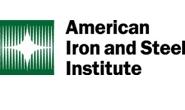Market Data

January 22, 2015
Three Ts Addressed by AISI and Obama
Written by Sandy Williams
The three T’s, taxes, trade and transportation, are top issues the American Iron and Steel Institute (AISI) hoped would be addressed by President Obama in the State of the Union address earlier this week.
AISI president and CEO Thomas Gibson expressed disappointment in the President’s address which had some “positive elements for the manufacturing sector” but “fell short of offering specific proposals to ensure robust growth for industry.”
“We believe the President’s message in support of manufacturing is sincere. But details matter, and tonight’s message failed to lay out specifics for pro-growth strategies for the three T’s that are critical to the steel industry – trade, tax and transportation,” said Gibson.
In a media conference earlier on Tuesday, Gibson said that although personal tax reform has been a main topic of discussion, a lower corporate tax rate is “appropriate” to promote increased investment in manufacturing in the U.S.
In the AISI statement following the President’s address, Gibson said that tax reform is “a great inspirational goal. But if we are going to promote manufacturing competitiveness then tax reform proposals must preserve deductions and credits that enhance manufacturing competitiveness and lower the overall taxes that U.S. businesses pay – as other nations have been doing for years.” Gibson noted that, at almost 40 percent, the U.S. combined tax rate is the highest in the world.
Unfair trade practices continue to impact the U.S. steel industry. During the media conference, Gibson noted that the surge of imports, often unfairly traded, is due to the “open and strong economy” in the U.S. as well as over 625 million net tons of overcapacity in the world steel industry.
Along with dumping and subsidization, there is a growing concern over currency manipulation used as tool to undercut U.S. domestic prices. Currently currency manipulation does not fall under countervailing duties that protect U.S. goods from subsidized imports. This is an issue that needs to be addressed in the Trade Promotion Authority (TPA) legislation, said Gibson, adding that U.S. trade laws should have specific language to address and remedy currency manipulation from countries exporting goods to the U.S.
In AISI’s statement, Gibson said, “We were pleased to hear the president talk about leveling the playing field and ensuring the U.S. writes the rules on trade, including with China. We hope that the president will follow through on this pledge by working to strongly enforce U.S. trade laws and including disciplines on currency manipulation in final trade agreements – as the majority of members of Congress have urged.”
America’s transportation infrastructure is in need of repair and rebuilding and to achieve that AISI urges a permanent source of funding for the Highway Trust Fund. “We are also pleased the President has highlighted the need for infrastructure funding, although many of his priorities specified during his 2014 address have not been realized – and there were no specifics outlined tonight to get there,” said Gibson. “It is imperative the Administration and Congress lay out a long-term and sustainable transportation funding mechanism based on a user fee principle – like a gas tax – that provides for a dedicated source of revenue.”







